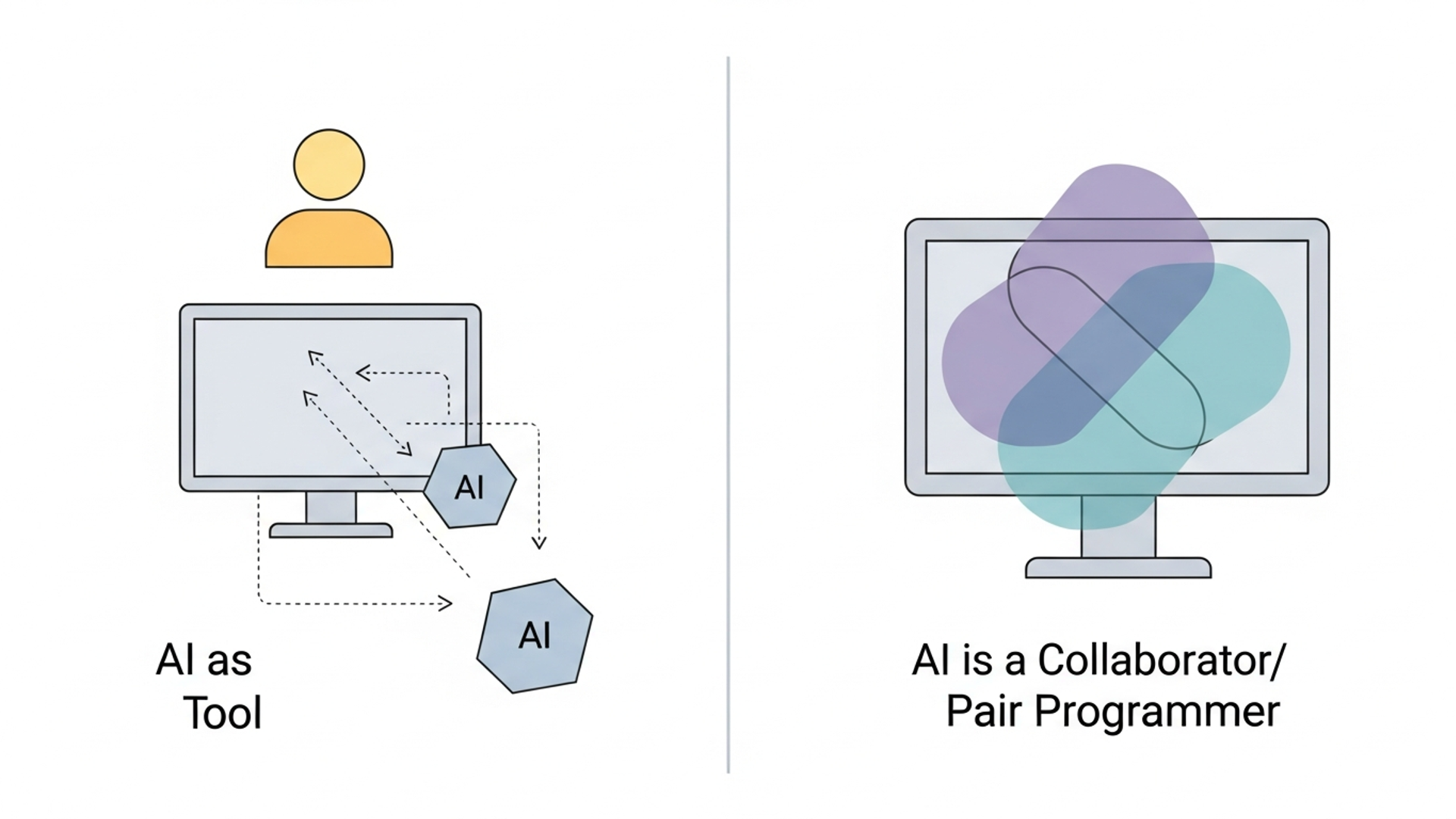When AI Becomes Your Pair Programmer

I used to think of AI as a really smart autocomplete. Type a few words, get a suggestion, accept or reject. Simple.
But something shifted over the past few months. The suggestions got longer. The context got deeper. The AI started remembering things I'd said three conversations ago. And suddenly, I wasn't just using a tool—I was working with a partner.
The Moment It Clicked
It happened during a late-night refactor. I was cleaning up a legacy API, and instead of asking "how do I do X?", I found myself explaining the problem out loud:
"I need to migrate these endpoints, but some clients still depend on the old format. I want to support both for a transition period, then deprecate the old ones."
The AI didn't just give me code. It asked clarifying questions. It suggested a migration strategy. It pointed out edge cases I hadn't considered. And when I pushed back on one of its suggestions, it adapted.
That's not autocomplete. That's collaboration.
What Changes When AI Remembers
The real shift isn't in what AI can do—it's in how it changes your process.
You Think Out Loud More
When your pair programmer is always listening, you start verbalizing your thought process. "I'm trying to do X because Y, but Z is blocking me." The act of explaining clarifies your own thinking.
Context Becomes Cumulative
Unlike a human pair programmer who might forget details from yesterday, AI remembers everything. That conversation about authentication from last week? It's still in context. That refactor we discussed? Still relevant.
You Debate Architecture
I've found myself having actual debates with AI about design decisions. "Should we use a queue here or handle it synchronously?" The AI makes a case, I push back, it refines. We iterate together.
The Uncomfortable Truth
Here's what I'm still figuring out: when do I trust the AI, and when do I trust myself?
Sometimes the AI suggests something that feels wrong, but I can't articulate why. Other times, it catches something I missed entirely. Learning to navigate that uncertainty—knowing when to push back and when to trust—is the new skill.
It's not about replacing judgment. It's about calibrating it.
What This Means for How We Build
If AI is becoming a true collaborator, our workflows need to reflect that.
- Version control becomes more important—not just for code, but for tracking AI suggestions and decisions
- Documentation shifts—we need to explain the "why" more, since AI handles the "how"
- Code reviews change—we're reviewing AI-generated code, which means reviewing the prompts and context that led to it
The tools are adapting. The processes are evolving. And honestly? It's exciting.
The Partnership
I don't think AI will replace developers. But I do think the best developers will be the ones who learn to work with AI, not just use it.
It's the difference between having a really good IDE and having a pair programmer who's read every Stack Overflow answer, memorized every framework's docs, and never gets tired.
That's not a tool. That's a partner.
And I'm still learning what that partnership looks like.